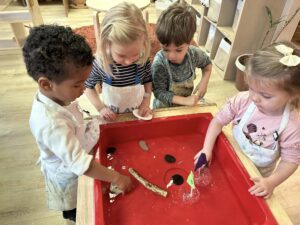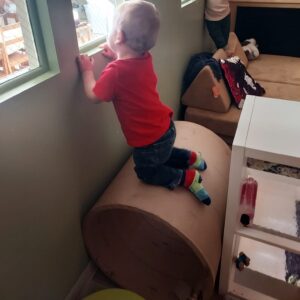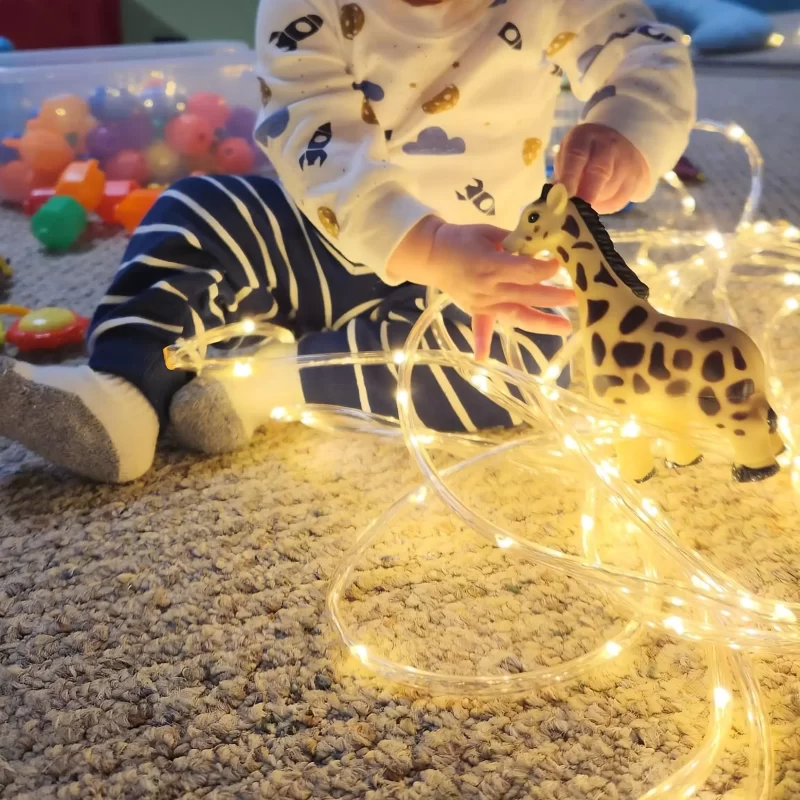A fundamental principle of the Reggio Emilia Approach is that children express themselves in a variety of ways. They use verbal skills of course, but also paint, jumping, music, rearranging toys, shouting, drawing, wiggling, and on and on. Called the “100 languages” of children, the concept is not limited to one hundred. It is symbolic of the endless ways children choose to interact with people and their environment.
But that interaction goes both ways. The 100 languages also describes the many ways children learn. That means that teachers don’t (and shouldn’t) just talk at their students. They use paint and make-believe — even wiggling and (playful) shouting — to teach. While many classical schools tell students to sit still and listen, Reggio schools say, “No way! The hundred is there.”
Originally written by Loris Malaguzzi, a pioneer of the Reggio Emilia Approach, and translated by Lella Gandini, this poem describes the how children use the 100 languages.
The child
is made of one hundred.
The child has
a hundred languages
a hundred hands
a hundred thoughts
a hundred ways of thinking
of playing, of speaking.
A hundred always a hundred
ways of listening
of marveling, of loving
a hundred joys
for singing and understanding
a hundred worlds
to discover
a hundred worlds
to invent
a hundred worlds
to dream.
The child has
a hundred languages
(and a hundred hundred hundred more)
but they steal ninety-nine.
The school and the culture
separate the head from the body.
They tell the child:
to think without hands
to do without head
to listen and not to speak
to understand without joy
to love and to marvel
only at Easter and at Christmas.
They tell the child:
to discover the world already there
and of the hundred
they steal ninety-nine.
They tell the child:
that work and play
reality and fantasy
science and imagination
sky and earth
reason and dream
are things
that do not belong together.
And thus they tell the child
that the hundred is not there.
The child says:
No way. The hundred is there.



